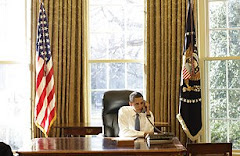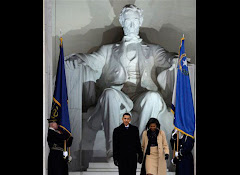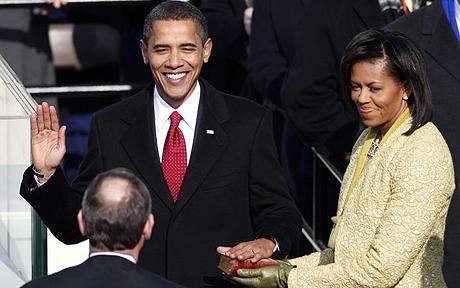
Experts: Democrats Can't Stop Blagojevich
Rod Blagojevich's decision to appoint Roland Burris to Illinois' vacant Senate seat, even as the governor faces intense criminal scrutiny, is being treated as a crazy political power grab. It also seems very likely to be permanent.
A legal scholar writes in to say that precedent surrounding the Senate's right to not seat certain members seems very likely to fall in Burris' favor.
"My reading of Powell v. McCormack, 395 U.S. 486, is that the Senate probably can NOT constitutionally block Burris from being seated," writes the constitutional law professor. "Art. I, sec. 5 gives each House the power to judge the qualifications of its own members. Powell holds (inter alia) that the qualifications to be judged are those stated in the Constitution (see Art. I, sec. 3, cl. 3 and the 17th Amendment)."
"Burris has met all of those qualifications: he's over 30, been a US citizen for 9 years, he's an Illinois resident; he was appointed by the executive authority of the state to fill a vacancy, pursuant to Illinois law."
Even on the state level, Democrats seem fairly hamstrung when it comes to stopping Blagojevich. Secretary of State Jesse White's office has said it will not certify the Burris appointment. But, here again, the law may not be on their side. State charter holds that it is the "duty" of the Secretary of State:
1. To countersign and affix the seal of state to all commissions required by law to be issued by the Governor.2. To make a register of all appointments by the Governor, specifying the person appointed, the office conferred, the date of the appointment, the date when bond or oath is taken and the date filed. If Senate confirmation is required, the date of the confirmation shall be included in the register.
Asked to assess the law in this case, legal scholars yet again say Burris is sitting in an enviable position.
"It looks to me that it is more or less a perfunctory act. And the refusal to do so will also be subject to litigation," said Ken Gross, the former associate general counsel of the Federal Election Commission. "If a certification of the Secretary of State is needed to qualify the senator, and that Secretary of State refused to offer the certification, you would likely see litigation in the state court."
As Gross sees it, the most likely path for attempts to block the appointment is as follows: Jesse White refuses to certify the appointment, only to have the decision overturned in the state courts. Senate Majority Leader Harry Reid would than refuses to seat Burris, only to be overruled by the U.S. Supreme Court.
The Senate does have the ultimate option of expelling Burris once he takes the oath of office. But that would require some extraordinary circumstances.
For several days in November, when it looked like Ted Stevens could be reelected, it was proposed that Congress would kick the Alaska Republic out of office over his ethical problems. But scholars considered that a stretch of legal reading. And if Stevens would have made it through the legal loopholes, it's hard to see how they ensnare Burris.
"I think there would have been problems not seating Stevens," said Gross. "But at least they had a reasonable option of expulsion. Here you don't have a very attractive expulsion option because Burris did nothing wrong.... You would have to say his misconduct was accepting the appointment. But from who? A guy who was innocent until proven guilty?"






































